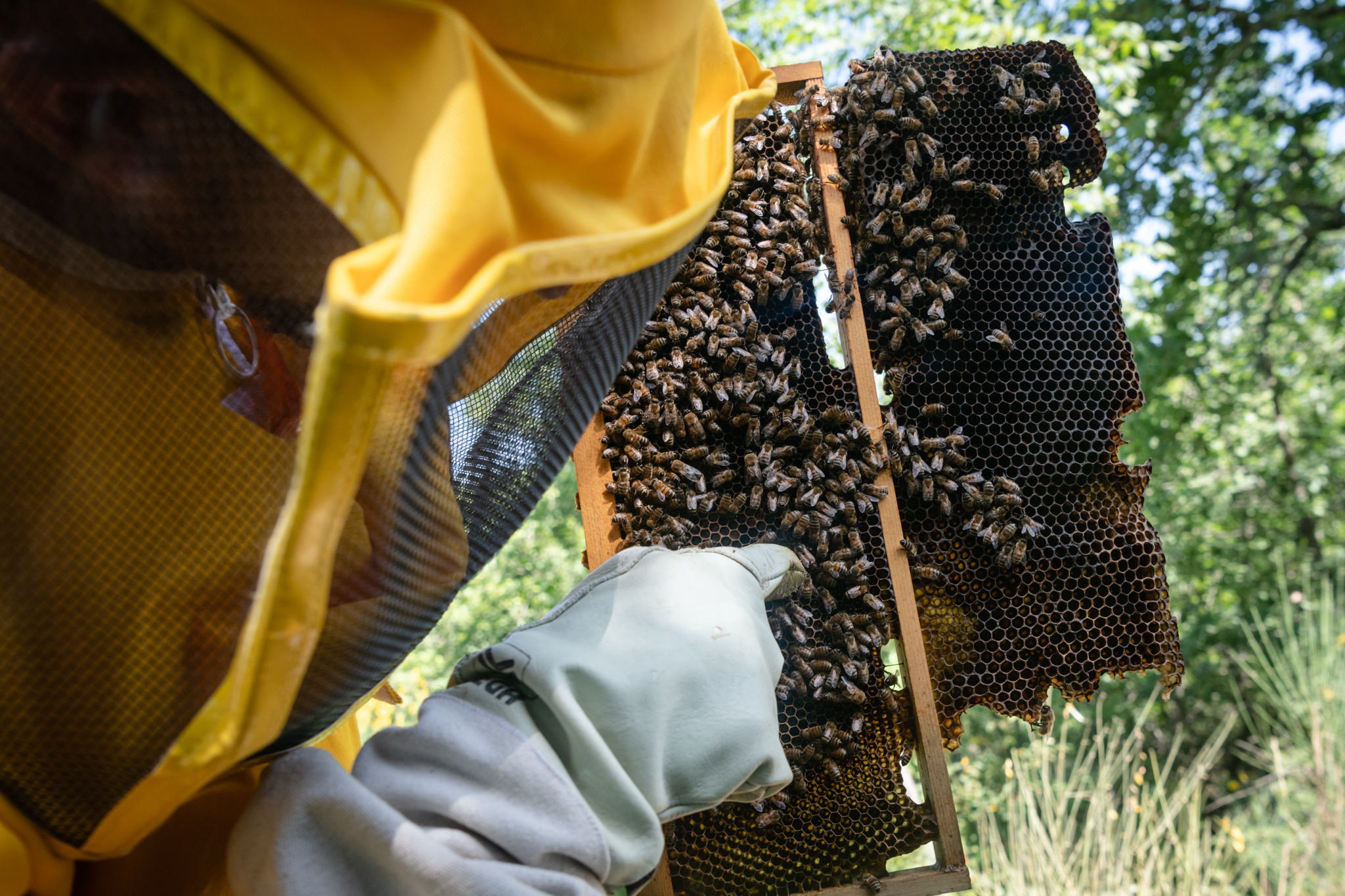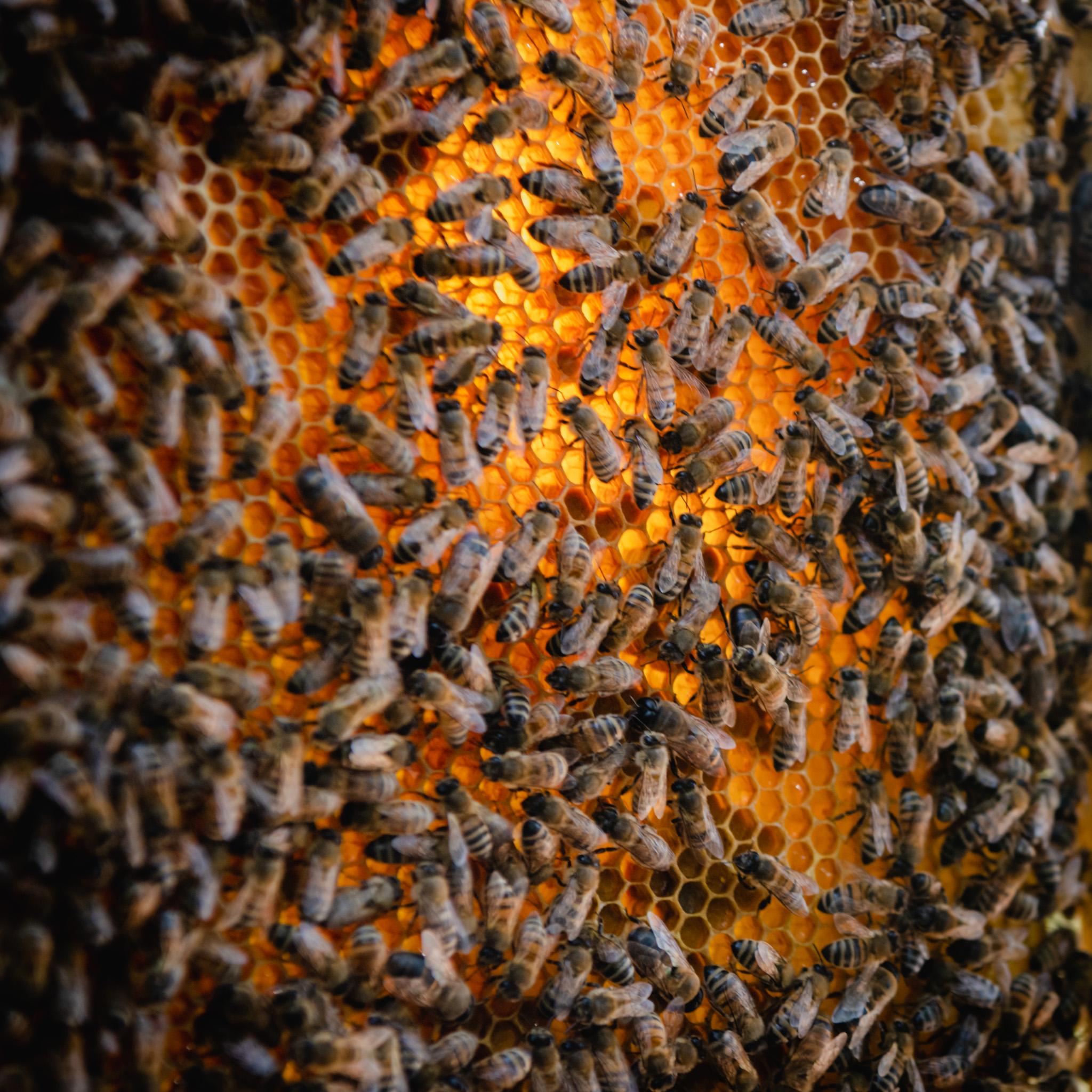
There is a buzz in the vineyard figuratively as well as literally at Fattoria di Montemaggio. Well, not in the vineyard only but all over the estate. We have recently become beekeepers by setting up a beehive. This is not only making wonders for biodiversity and the ecosystem but we also hope to soon be able to produce honey to share with you all.
But how and why are bees so important for the ecosystem at large?
Let us dig a bit deeper into the fascinating world of bees.
What is the Role of Bees?
The keeping of honeybees promotes pollination as a bee is in fact a pollinator that helps the plants to reproduce. What is a pollinator then? Well, it is “an insect or animal that carries pollen from one plant to another”. A bee flies around from plant to plant and while feeding on a plant a small part of the pollen remains on the body of the bee, when it then continues to another plant some of that pollen rubs off on that second plant helping it to reproduce. The essence of cross-pollination! This is indeed the only system for a plant to create new seeds that will then give rise to new plants, thus enhancing the number and varieties of them and their flowers. In fact, Daniele who did an internship at Fattoria di Montemaggio earlier this year wrote his graduation thesis about pollinators and argues that the breeding of bees is determining the level of biodiversity in the vineyard and all over the estate. (Watch the video here.)
Bees do not only pollinate they are also important food for “predators” such as other insects, spiders, different types of reptiles, birds, skunks, etc. Bees are in fact an important part of the food for these kinds of animals.
Now you see why bees have a crucial role in the general ecosystem.
Bees in Viticulture
Bees are also crucial for viticulture or for “fine wine” production which Amy Wislocki writes about in the article Why are bees important in the vineyard? in Decanter. She is referring to Nicole and Xavier Rolet of Ventoux’s Chêne Bleu in France and their research and practical experience when it comes to bees and their role in viticulture. In this context, the cover crops play a central role together with the bees. Cover crops not only add nitrogen and organic matter to the soil to improve the soil’s microbe, but it also welcomes pollinators and contributes to the pollination process. To provide a place for bees to pollinate the cover crops need to be species with flowers such as trefoil, phacelia, and buckwheat. Now, vines are, in reality, self-pollinating plants but still, they need soil that is teeming with life and an environment with rich biodiversity to thrive. The general health and “circle of life” in the ecosystem are of the essence to make complex fine wines. Organic farming without the use of pesticides or other chemical products is key for this to work. In a healthy environment, the bees have a significant part to fulfill.

The Role of Bees at Fattoria di Montemaggio
This year we have set up a beehive and the bees are starting to reproduce themselves and produce honey. We have Egzon, our own beekeeper, who approached us some time ago being interested in the beekeeping concept. The bees we are keeping are an Italian honeybee species where the bees are fairly orange colored. The bees are already producing honey, in minor quantities, though mainly to grow the beehive and we will need to wait for a while before we can produce honey more consistently. In fact, we cannot wait to have honey for you to taste during the wine tours and tastings.
Francesco Garuglieri, our wine tour manager and video personality, mentions that he has had a taste of the little honey that is produced and that he finds the quality extraordinary already at this point. Francesco continues to stress that the bees are not kept only for the production of honey but also, and foremost, to “help increase biodiversity and to help with the resilience of the ecosystem”. He emphasizes that “resilience” is the keyword when working towards a more stable and healthy ecosystem where the aim is to make it as self-sufficient as possible. In the long term, this will finetune the quality of our wines and all of our products. (Watch the video here.)
As the icing on the cake, honey is also yummy to add, for example, on cheese and then pair with a suitable wine. Francesco suggests pairing acacia honey with cheese rich in fat and then combine it with a dry or aged white wine like, for example, a Riesling or why not our very own Chardonnay di Montemaggio.
Written by Katarina Andersson.
.






Leave a Reply